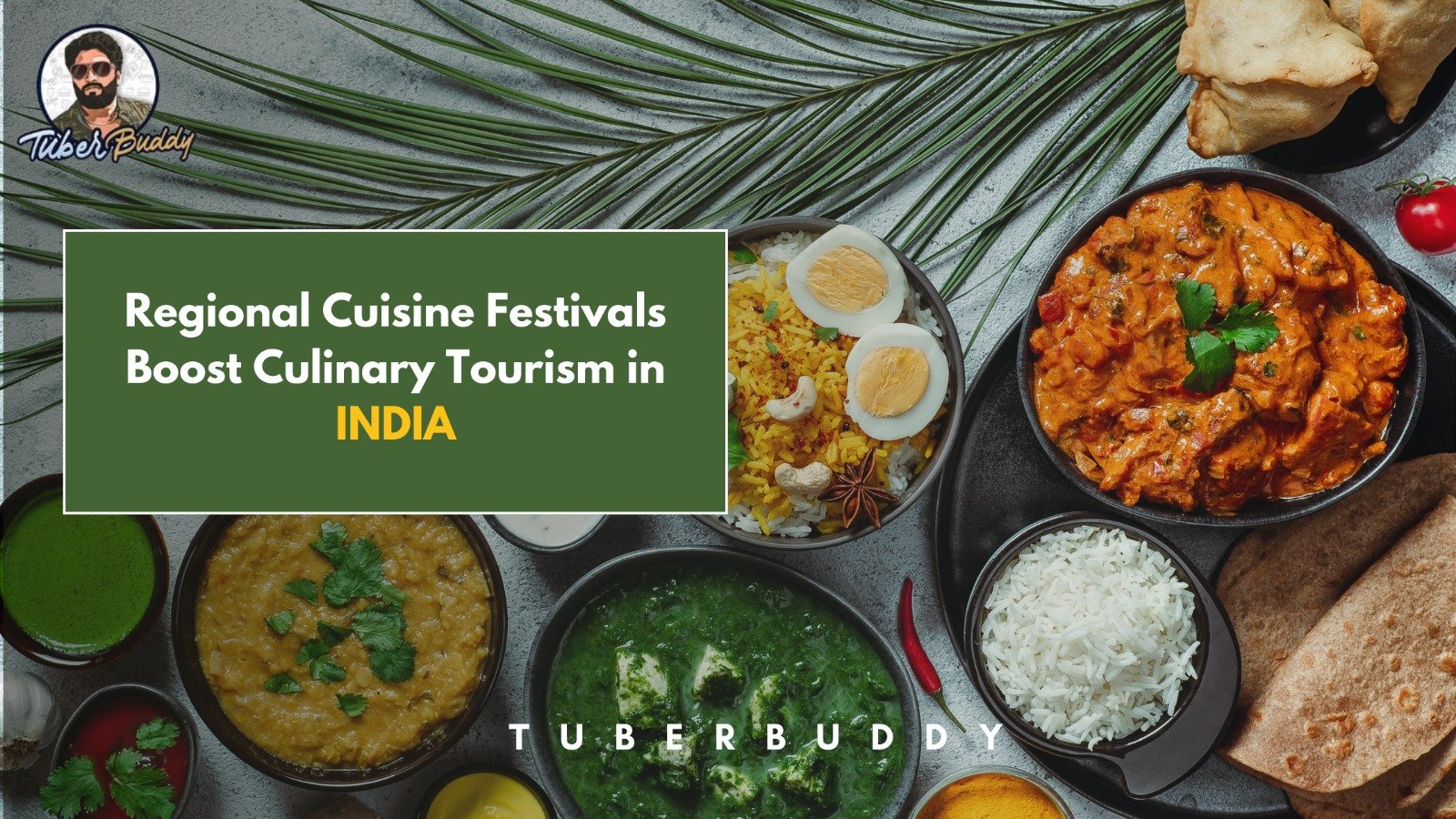Culinary Tourism in India | Explore Regional Flavors & Food Trails

India’s diverse and rich culinary heritage is gaining international recognition, with regional cuisine festivals playing a key role in boosting culinary tourism. These festivals celebrate the unique flavors of different states, offering tourists an authentic food experience. From the spicy curries of Kerala to the sweet delicacies of West Bengal, regional food festivals showcase traditional cooking methods, local ingredients, and cultural history. While enjoying these events, it’s equally important to focus on sustainability and learn How to Reduce food Waste, ensuring that the abundance of flavors is celebrated without unnecessary loss. These events not only attract food lovers but also support local economies by promoting small-scale producers and restaurateurs.
Rise in Culinary Tourism
Culinary tourism is becoming a significant driver of travel in India. Many tourists are now traveling specifically to taste regional specialties and attend food festivals. Festivals such as Goa’s Seafood Festival, Lucknow’s Tunday Kababi Fest, and Kolkata’s Durga Puja Food Walks offer visitors the chance to explore India’s gastronomic landscape while immersing themselves in local culture. The surge in culinary tourism reflects a growing global trend where travelers seek immersive experiences that include food tastings, cooking workshops, and farm-to-table experiences.
Unique Food Experiences
The growing popularity of regional cuisine festivals highlights the desire for authentic food experiences. These events provide more than just a meal—they offer a connection to the local history, traditions, and people behind the dishes. For instance, festivals like Nagaland’s Hornbill Festival offer tourists a glimpse into tribal culture through their unique food, including smoked meats and bamboo shoot dishes. Similarly, the Pongal Festival in Tamil Nadu emphasizes traditional Tamil foods like pongal, showcasing the cultural significance of harvest celebrations.
Supporting Local Economies
Regional cuisine festivals also provide economic benefits by promoting small and local businesses, including farmers, food producers, and vendors. Local chefs and culinary experts find these platforms useful to share their expertise, while tourists contribute to the local economy by spending on food, accommodation, and experiences. For example, the Pushkar Camel Fair not only focuses on livestock trading but also highlights Rajasthani cuisine, drawing tourists to the rich flavors of the desert state.
Culinary Education and Awareness
These festivals serve as a medium to educate tourists about the importance of sustainability in food consumption. Many regional cuisine festivals emphasize the use of organic, locally sourced ingredients, thereby raising awareness about sustainable farming and eco-friendly food production. Tourists are also introduced to lesser-known ingredients and traditional cooking techniques, which foster a deeper appreciation of India’s food diversity.
Conclusion
With the rise of culinary tourism, regional cuisine festivals are not just about food—they are gateways to cultural discovery and economic growth. By promoting local traditions and fostering community engagement, these festivals are placing India on the global culinary map. As more tourists seek immersive food experiences, India’s regional cuisine festivals are poised to play an even bigger role in shaping the country’s tourism landscape. At the same time, travelers and organizers are becoming more conscious of sustainability, exploring practical ways on How to Reduce Food Waste while still enjoying the richness of these culinary celebrations.
For more culinary content, check out this link for food experiences and explore travel insights here. You can also catch the latest blog post here.
